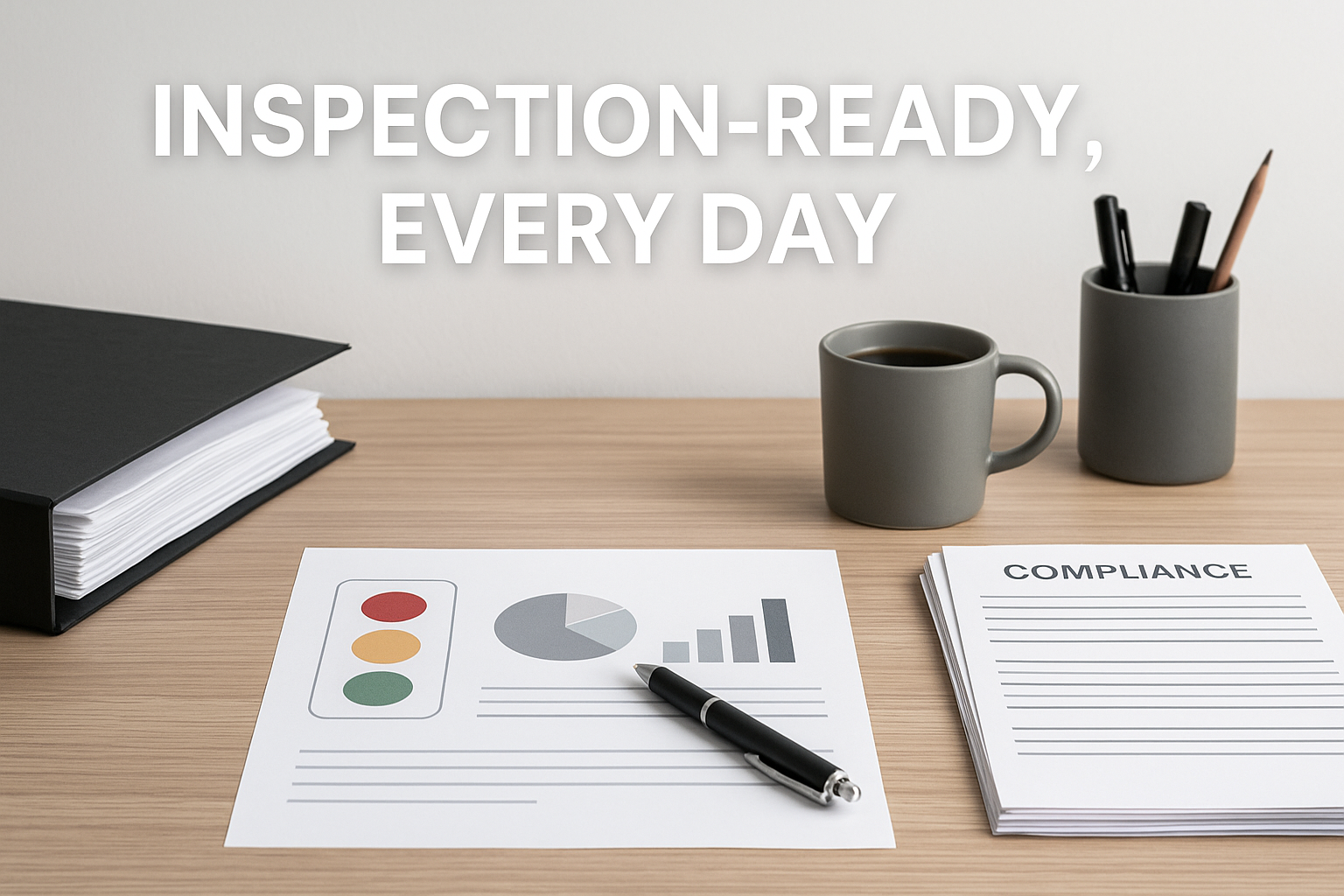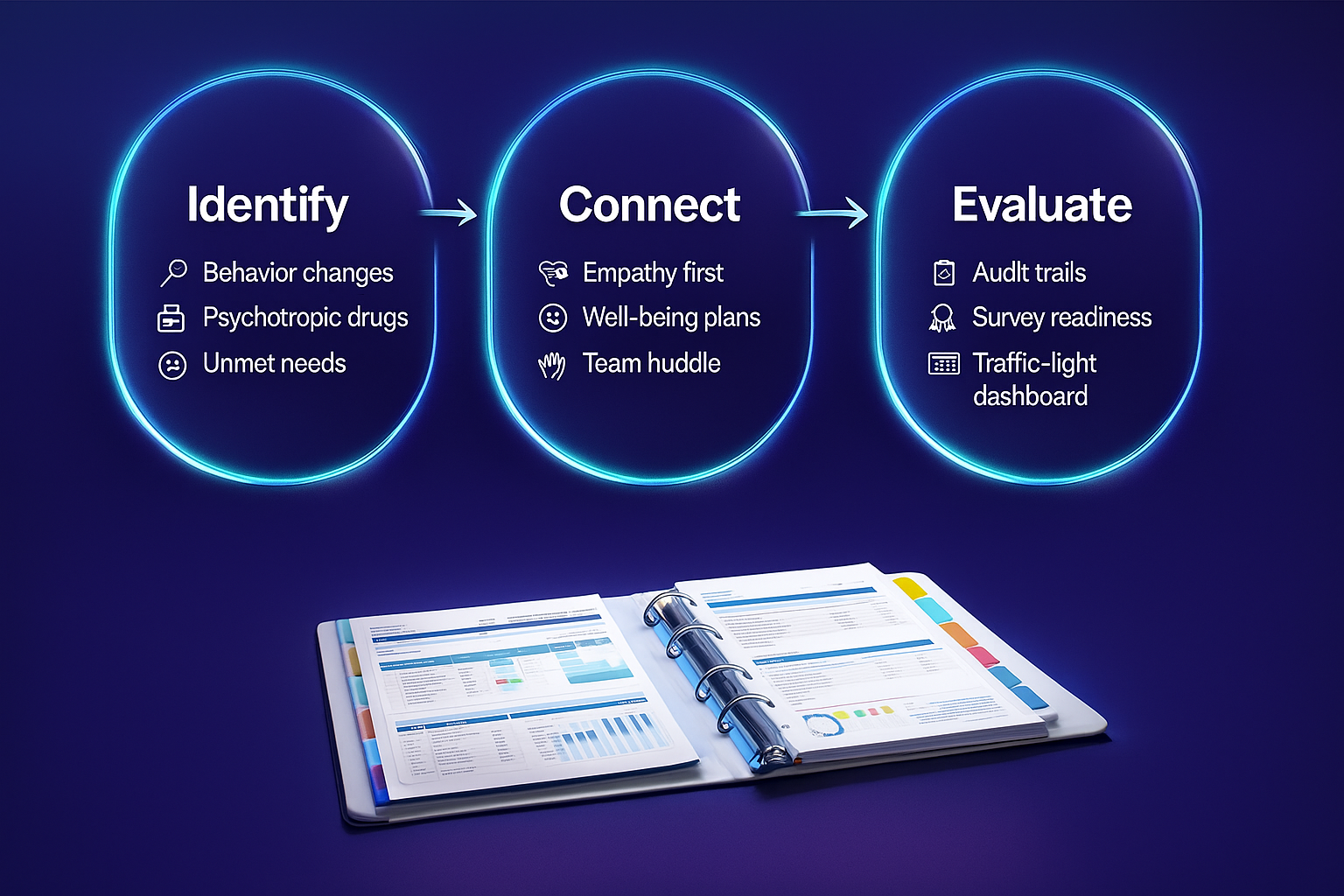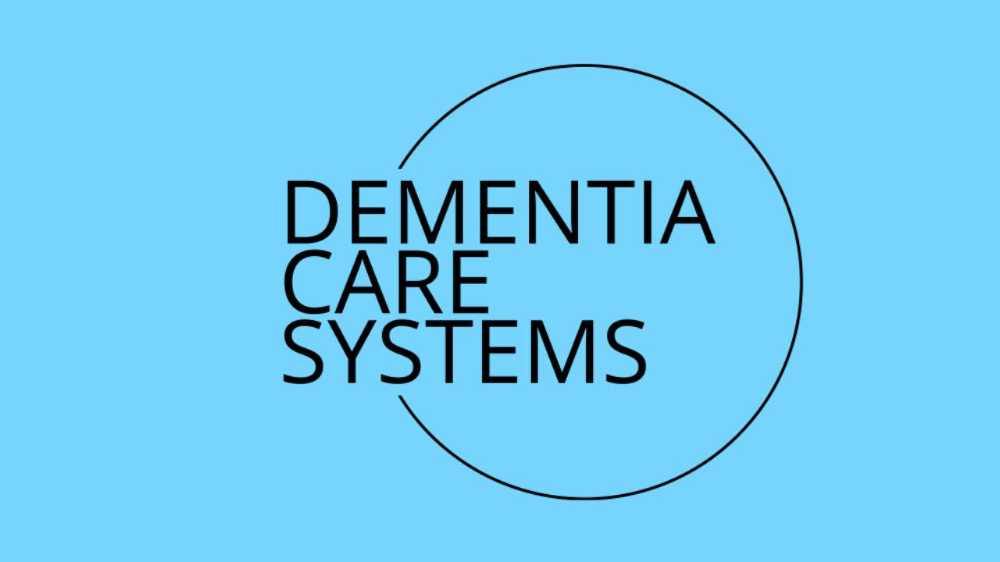Inspection-Ready, Every Day — in the U.S., U.K., Ireland, and Canada
The ICE Dementia Care Framework helps your nursing or care home meet inspection standards wherever you are.
It builds person-centred dementia care into everyday practice and keeps all your evidence organised, clear, and ready to show.
Instead of scrambling for paperwork before an inspection, you will already have everything in one place — consistent, up to date, and easy for inspectors to follow.
Get in touch with Cathal
What All Regulators Expect
Even though inspection bodies differ from country to country, they all look for the same core principles in dementia care:
1. Non-drug approaches first
Staff should look for the reason behind a behaviour — pain, boredom, confusion, overstimulation, hunger, loneliness — and support the resident without relying on medication.
2. Regular medication review
If an antipsychotic is used, there must be a clear reason, documentation, and regular attempts to reduce or stop it safely.
3. Safe, well-managed systems
Every PRN dose must be justified, reviewed, and clearly recorded. Medication is never the first response.
4. Trained and confident staff
Inspectors want to see that staff understand dementia, recognise unmet needs, and respond in a calm, person-centred way.
5. Ongoing review and improvement
Care plans, team meetings, audits, and notes should show continuous learning and better resident outcomes.
The ICE Framework builds all of these into daily routines — and your Evidence Binder shows this clearly to inspectors.
How ICE Aligns With Your Country’s Standards
Below are quick summaries showing how ICE maps directly to major inspection bodies.
United States — CMS (F-Tags & OBRA ’87)
U.S. surveyors look closely at:
F758: Unnecessary Psychotropic Medications
- Gradual Dose Reductions (GDR)
- Behaviour monitoring
- Non-drug interventions
- Consent and clear documentation
How ICE helps:
Identify → shows the unmet need behind the behaviour
Connect → documents non-drug approaches used
Evaluate → provides GDR notes, outcome monitoring, and interdisciplinary review
The ICE Binder gives surveyors a clear, step-by-step record that meets CMS expectations.
United Kingdom — CQC & NICE (NG97)
CQC inspections focus on whether care is:
Safe, Effective, Caring, Responsive, Well-Led.
NICE dementia guidance emphasises:
- Non-drug approaches first
- Regular review of antipsychotics
- Person-centred planning
How ICE helps:
Identify → unmet needs and life history documented
Connect → clearly documents alternatives attempted before considering antipsychotic medication”
Evaluate → PRN reviews, medication reviews, audits
ICE makes Regulation 12: Safe Care and Treatment easy to demonstrate.
Ireland — Relevant Regulatory & Clinical Guidelines
Irish dementia care guidelines emphasise:
• Person-centred care
• Clear rationale for antipsychotic use
• Evidence that non-drug options have been considered
• Regular review and updating of care approaches
How ICE helps:
Identify → behaviours assessed with clear rationale
Connect → non-drug supports shown in care plans
Evaluate → regular medication reviews and reductions
An ICE Binder helps providers demonstrate a clear, structured approach to safe, thoughtful dementia care.
Canada — HSO Standards & AUA Initiative
Canadian inspectors and quality bodies focus on:
- Reducing potentially inappropriate antipsychotic use
- Person-centred dementia care
- Medication review and tracking
- Staff education
How ICE helps:
Identify → supports the National AUA strategy
Connect → structured non-drug interventions
Evaluate → tracking, dashboards, and review cycles
The ICE Dashboard supports CIHI reporting and AUA monitoring.
The Evidence Binder (Your Proof During Inspection)
The Evidence Binder is where everything comes together.
It shows inspectors — in one organised place — that your home:
- Reviews every resident on antipsychotics
- Uses non-drug strategies before medication
- Trains staff in person-centred dementia care
- Places resident well-being at the centre of decisions
When inspectors arrive, you simply open the binder and walk them through it.
How the Binder Works
- Staff complete ICE training
They learn to identify unmet needs, connect with supports, and evaluate outcomes. - Evidence is created naturally
Care plans, logs, audits, STAR exercises, PRN notes, quarterly reviews. - Evidence is filed under simple tabs
Everything has a place. Inspectors can find what they need, instantly. - The binder stays current
Daily, weekly, and quarterly updates ensure you are always inspection-ready.
In short:
The binder turns good practice into visible proof.

What’s in Each Binder Section
1. Traffic-Light Dashboard
A quick way to prioritise residents on antipsychotic medication by identifying who are presenting with behaviours of concern, who are improving and who may be ready for medication reduction.
Red = behaviour concerns present and resident in distress, requires a review to identify unmet needs that are driving the behaviour change
Amber = improvement, next step is a review is planned
Green = behaviour is settled, may be ready for reduction/stop of antipsychotic medication when resident well-being plan is completed and in place
Shows every resident is regularly reviewed.
2. Pre & Post Training Audits
A quick check before training begins — and again after.
Shows real, measurable progress.
3. Resident Well-Being Packs
One folder per resident on antipsychotics, including:
Behaviour description
Reason for medication
Unmet needs identified
Non-drug strategies attempted
GDR attempts
Current well-being plan
Proves care is personalised and safe.
4. PRN Log
Records every PRN dose, what was tried first, and the prevention plan added afterwards.
Shows medication is never the first response.
5. Training Evidence
Staff completion list
STAR and Stone-in-Shoe exercises
Team meeting notes
Shows staff are trained and supported.
6. Quarterly Review Notes
Every three months:
Reviews completed
GDRs attempted
Non-drug strategies that worked
Feeds directly into quality improvement.
7. Policies & Crosswalk
Non-drug-first policy
GDR protocol
One-page summary demonstrating how your nursing home is meeting standards
Makes compliance easy for inspectors to see.
8. Small Wins & Culture Change
Records improvements across the home:
Routines
Activities
Communication
Environment
Staff approach
Shows real culture change, not just paperwork.
Always Inspection-Ready
With ICE, you’re not just meeting standards — you're building a confident, compassionate system of dementia care that inspectors can trust.
Managers feel organised.
Staff feel supported.
Inspectors see the evidence.
Residents feel the benefit.
One framework. One binder. Full confidence.

